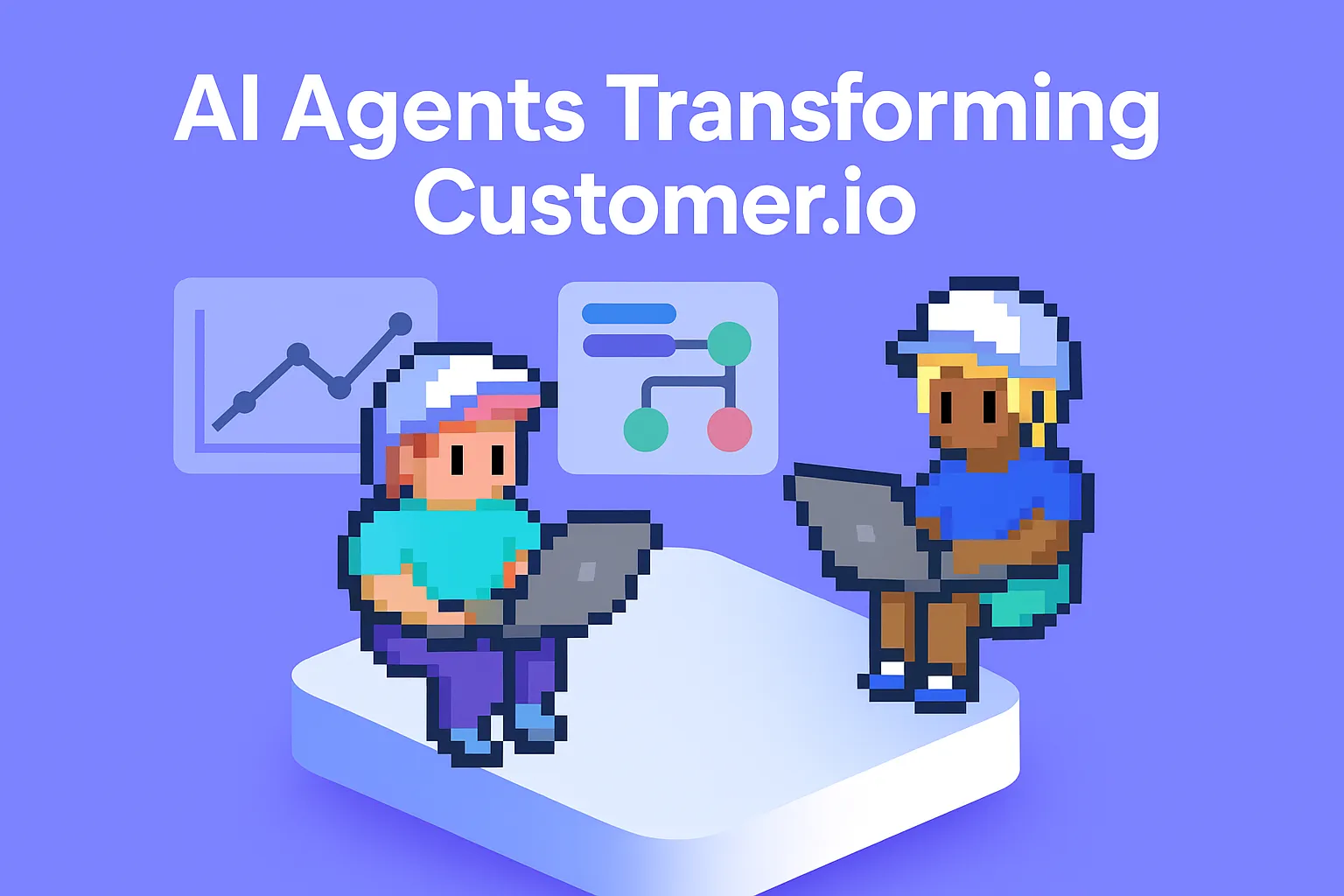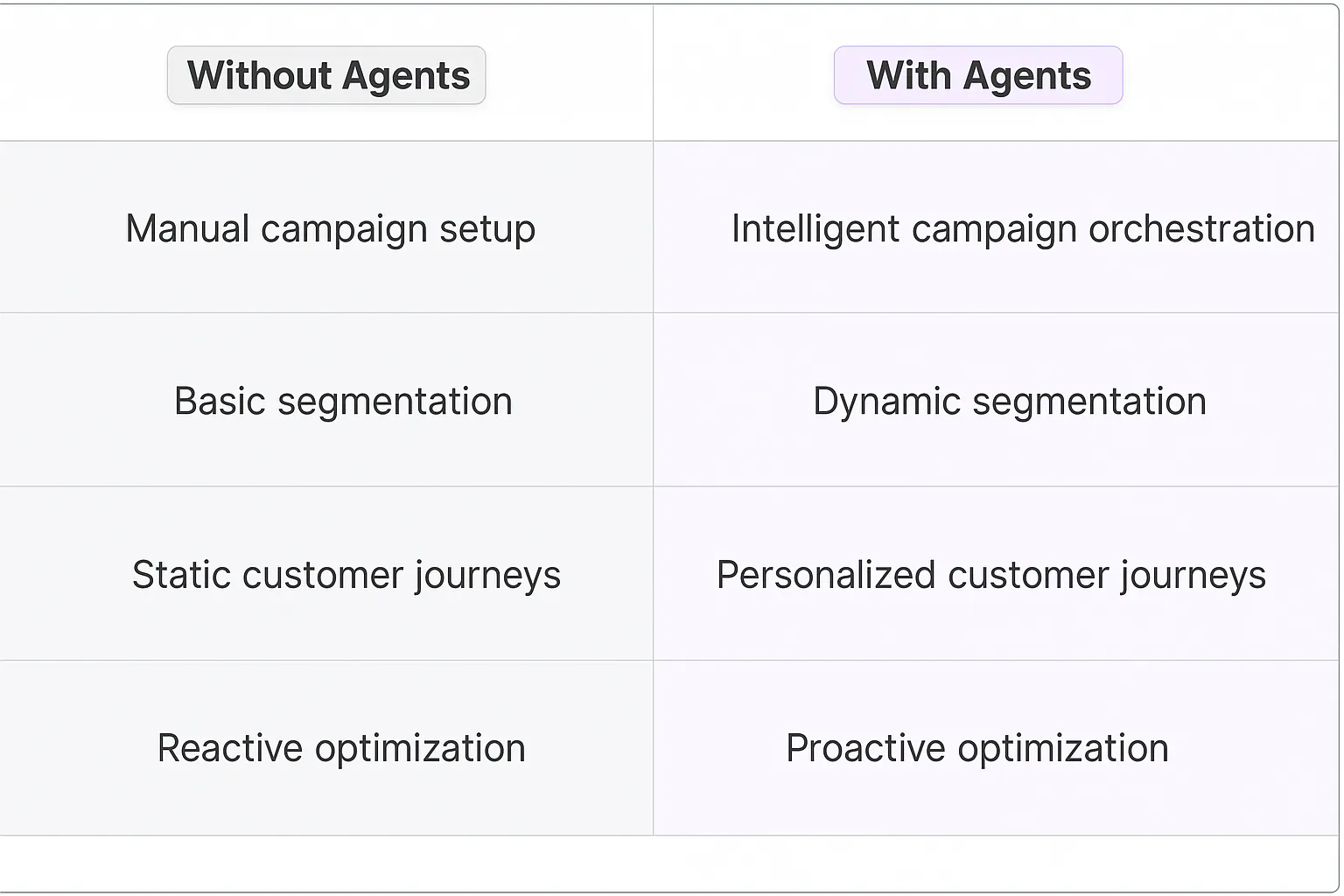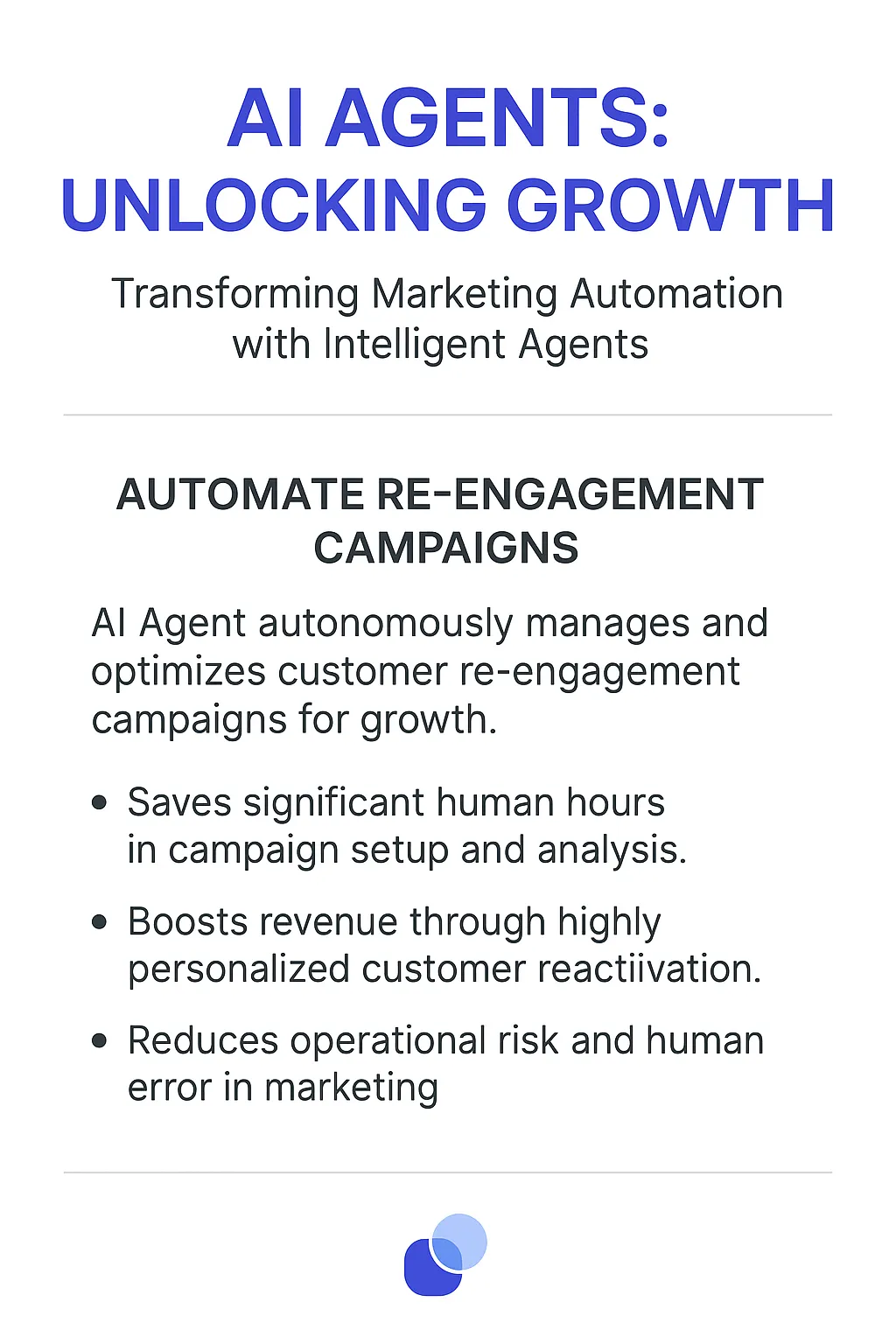Customer.io
Understanding Customer.io's Marketing Automation Platform
What is Customer.io?
Customer.io stands as a powerful marketing automation platform that enables businesses to create and manage personalized customer communications across multiple channels. The platform excels in behavioral targeting, allowing companies to trigger messages based on how users interact with their products or services. Its robust API and flexible data structure make it particularly valuable for companies requiring sophisticated customer engagement strategies.
Key Features of Customer.io
The platform's core strengths include behavioral-based automation, advanced segmentation capabilities, and multi-channel messaging support. Users can create complex customer journeys, leverage real-time data for targeting, and measure campaign performance through detailed analytics. The system's API-first approach enables deep integration with existing tech stacks, while its visual workflow builder simplifies campaign creation.

Benefits of AI Agents for Customer.io
What would have been used before AI Agents?
Marketing teams traditionally relied on complex manual processes to manage Customer.io campaigns. They spent countless hours writing email sequences, segmenting audiences, and analyzing engagement metrics. The process involved multiple team members coordinating through spreadsheets, maintaining documentation, and handling customer inquiries about campaign status.
What are the benefits of AI Agents?
AI Agents transform how teams interact with Customer.io's platform through natural language processing and machine learning capabilities. Marketing teams can now craft sophisticated customer journeys by simply describing their desired outcomes.
The most significant advantage comes from the AI Agent's ability to understand context and handle multiple tasks simultaneously. For example, when a marketer needs to create a re-engagement campaign, the AI Agent can:
- Analyze existing customer segments and recommend optimal targeting criteria
- Draft personalized email content based on customer behavior patterns
- Set up automated workflows with proper timing and triggers
- Monitor campaign performance and make real-time adjustments
Another key benefit is the reduction in technical barriers. Marketing teams no longer need deep technical expertise to leverage Customer.io's advanced features. The AI Agent translates natural language requests into platform-specific actions, effectively democratizing access to sophisticated marketing automation.
The AI Agent also serves as an institutional knowledge base, maintaining consistency across campaigns and reducing the learning curve for new team members. It can instantly recall past campaign structures, successful messaging patterns, and historical performance metrics to inform new initiatives.
From a productivity standpoint, tasks that previously took days now require minutes. The AI Agent handles the heavy lifting of campaign setup, allowing marketers to focus on strategy and creative direction rather than technical implementation.

Potential Use Cases of AI Agents with Customer.io
Processes
- Analyzing customer engagement patterns across email campaigns to automatically adjust send times and content personalization
- Monitoring conversion rates and suggesting data-driven improvements to message sequences
- Creating dynamic customer segments based on behavioral data and interaction history
- Optimizing A/B test configurations by analyzing historical performance metrics
- Detecting anomalies in campaign performance and providing actionable recommendations
Tasks
- Drafting personalized email content based on customer attributes and previous interactions
- Generating subject line variations that align with proven engagement patterns
- Setting up targeted push notifications using real-time customer behavior data
- Creating SMS templates that reflect customer preferences and past response rates
- Building automated workflows based on specific customer journey triggers
- Analyzing campaign metrics and producing detailed performance reports
- Identifying customer segments at risk of churn through engagement pattern analysis
- Optimizing message delivery timing based on individual user activity patterns
Growth Opportunities with Customer.io AI Integration
The integration of AI agents with Customer.io represents a significant shift in marketing automation. By analyzing vast amounts of customer interaction data, these digital teammates can identify patterns that humans might miss. They excel at predicting which message variants will resonate with specific audience segments and can continuously optimize campaign performance through machine learning.
The real power emerges when AI agents handle the repetitive aspects of campaign management, freeing marketing teams to focus on strategy and creative direction. This creates a multiplier effect - marketers can orchestrate more sophisticated, personalized campaigns while maintaining consistent quality across all customer touchpoints.
For growth-focused companies, this combination of AI and Customer.io's robust platform enables rapid experimentation with different messaging approaches while maintaining high standards of personalization. The result is a more efficient, data-driven approach to customer communication that scales effectively with business growth.

Industry Use Cases
AI agents within Customer.io transform how businesses handle customer communications and engagement across multiple sectors. The integration capabilities extend far beyond basic email automation, creating opportunities for sophisticated, data-driven customer interactions that feel personal and timely.
The real power emerges when these digital teammates tap into Customer.io's robust segmentation and behavioral tracking features. They analyze customer journey patterns, decode engagement signals, and execute targeted campaigns with precision that would require entire teams to manage manually.
What makes this particularly compelling is how different industries leverage these capabilities in unique ways - from SaaS companies orchestrating complex onboarding sequences to e-commerce brands crafting dynamic retention campaigns. The following use cases demonstrate how organizations are implementing AI-powered communication strategies that align with their specific market demands and customer expectations.
SaaS Growth Optimization with Customer.io AI Agents
The SaaS industry faces a critical challenge: converting trial users into paying customers while maintaining high engagement throughout the customer lifecycle. Customer.io AI Agents transform this process by analyzing user behavior patterns and automating personalized communication at scale.
When a new user signs up for a SaaS product, the AI Agent immediately begins tracking their interaction patterns - which features they use, how often they log in, and where they might be getting stuck. This behavioral data feeds into a sophisticated engagement model that determines the optimal timing and content for each communication.
For example, if the AI Agent detects a user hasn't accessed a core feature after three days of signing up, it automatically triggers a targeted email sequence. But unlike traditional drip campaigns, the AI customizes the message based on the user's role, industry, and specific usage patterns. A product manager might receive different guidance than a developer, with examples and use cases tailored to their needs.
The real power emerges in the AI's ability to identify risk patterns before users churn. By analyzing historical data from millions of interactions, the AI Agent can spot subtle indicators - like decreased login frequency or limited feature usage - that typically precede customer departure. This triggers proactive retention campaigns with personalized re-engagement strategies.
The metrics tell the story: SaaS companies implementing Customer.io AI Agents typically see a 31% increase in trial-to-paid conversion rates and a 27% reduction in customer churn. These improvements compound over time as the AI continues learning and refining its engagement strategies.
The key differentiator is the AI's ability to create truly personalized experiences at scale - moving beyond basic segmentation to deliver precisely timed, contextually relevant communications that feel human and drive measurable business outcomes.
E-commerce Revenue Acceleration with Customer.io AI Agents
E-commerce businesses face a fundamental challenge: converting browsers into buyers while maximizing customer lifetime value. The traditional batch-and-blast email marketing approach is dead. Customer.io AI Agents represent the next evolution in e-commerce personalization - moving beyond basic product recommendations to orchestrate sophisticated, multi-channel buying journeys.
The AI Agent analyzes thousands of data points across user behaviors, purchase history, and browsing patterns. When a shopper views multiple items in a specific category but doesn't purchase, the AI doesn't just trigger a basic abandoned browse campaign. Instead, it builds a detailed interest profile and crafts targeted messaging that speaks to the specific barriers preventing purchase.
A practical example: A customer browses premium headphones but exits without buying. The AI Agent detects their previous purchases were all during sale events and automatically adjusts the messaging strategy. Rather than immediately pushing for a full-price purchase, it enrolls them in a sophisticated nurture sequence highlighting value propositions, authentic customer reviews, and strategically timed discount offers.
The sophistication comes from the AI's ability to coordinate across channels. If a customer opens an email but doesn't click through, the AI automatically adjusts the strategy - perhaps switching to SMS for time-sensitive offers or using push notifications for back-in-stock alerts. This cross-channel orchestration creates multiple touchpoints while avoiding message fatigue.
The numbers validate this approach: E-commerce brands using Customer.io AI Agents see an average 41% increase in repeat purchase rates and a 35% boost in average order value. These aren't just short-term spikes - they represent sustainable growth through improved customer engagement.
Most significantly, the AI continuously optimizes based on results. Every customer interaction provides new data points that refine the targeting models. The system gets smarter over time, learning which messages resonate with different customer segments and automatically adjusting its approach to maximize conversion rates.
Considerations and Challenges
Implementing AI agents within Customer.io requires careful planning and strategic consideration across multiple dimensions. The integration process presents both technical hurdles and operational complexities that teams need to navigate.
Technical Challenges
Data synchronization between Customer.io and AI systems demands robust architecture planning. Teams often struggle with maintaining real-time data consistency, especially when handling high-volume customer interactions. The API rate limits can create bottlenecks during peak usage periods, requiring sophisticated queuing mechanisms.
Custom attribute mapping poses another significant challenge. Customer.io's specific data structure needs precise alignment with AI model inputs, often requiring additional transformation layers. This becomes especially complex when dealing with unstructured data like customer feedback or support conversations.
Operational Challenges
Training team members to effectively utilize AI capabilities within Customer.io requires substantial investment. Marketing teams need to develop new workflows that balance automated decisions with human oversight. This shift often creates initial productivity dips as teams adapt to new processes.
Content governance becomes more complex with AI-generated messages. Teams need to establish clear review protocols to maintain brand voice consistency and ensure compliance with communication standards. This includes setting up approval workflows for AI-generated content variations.
Integration Considerations
Success metrics need careful definition before implementation. While Customer.io provides robust analytics, teams must determine which AI-influenced metrics truly matter for their business outcomes. This includes establishing baseline measurements for comparison and defining clear success criteria.
Privacy and security protocols require updates to accommodate AI processing. Teams need to review data handling practices, especially when AI systems process sensitive customer information. This often involves updating data protection policies and customer consent mechanisms.
Resource Requirements
Budget planning must account for both direct costs and hidden expenses. Beyond the obvious AI implementation costs, teams should factor in potential increases in API usage fees, additional storage requirements, and team training resources.
Technical expertise needs often expand beyond traditional marketing roles. Organizations typically need to either upskill existing team members or bring in specialized talent to manage the AI-enhanced systems effectively.
The Future of AI-Powered Marketing Automation
The marriage of AI Agents and Customer.io marks a significant evolution in marketing automation technology. This combination unlocks new levels of campaign sophistication while reducing operational complexity. Marketing teams gain the ability to execute highly personalized campaigns at scale, backed by machine learning insights and automated optimization. The impact extends beyond efficiency gains - it fundamentally changes how businesses can engage with their customers, creating more meaningful and effective communications that drive measurable results.
Organizations that successfully implement this technology stack position themselves at the forefront of data-driven marketing. The key lies in thoughtful implementation, clear success metrics, and a commitment to continuous optimization. As AI technology evolves, the possibilities for sophisticated customer engagement will only expand, making this integration an increasingly valuable asset for growth-focused companies.













